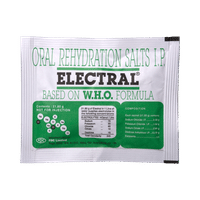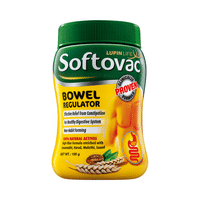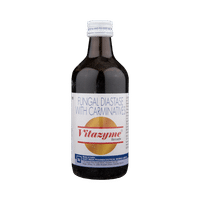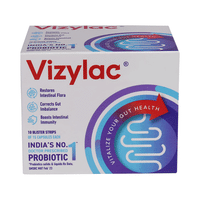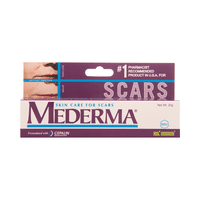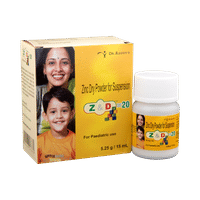Cerime D 200mg/500mg Tablet

food interaction for Cerime D
alcohol interaction for Cerime D
pregnancy interaction for Cerime D
lactation interaction for Cerime D
food
alcohol
pregnancy
lactation
Cerime D 200mg/500mg Tablet may be taken with or without food, but it is better to take it at a fixed time.
Take it 1 hour before or 2 hour after taking food.
None
Take it 1 hour before or 2 hour after taking food.
None
CAUTION
Consuming alcohol with Cerime D 200mg/500mg Tablet does not cause any harmful side effects.
SAFE
Cerime D 200mg/500mg Tablet is generally considered safe to use during pregnancy. Animal studies have shown low or no adverse effects to the developing baby; however, there are limited human studies.
SAFE IF PRESCRIBED
Cerime D 200mg/500mg Tablet is safe to use during breastfeeding. Human studies suggest that the drug does not pass into the breastmilk in a significant amount and is not harmful to the baby.
SAFE IF PRESCRIBED
SALT INFORMATION FOR Cerime D
Cefixime(200mg)
Uses
Cefixime is used in the treatment of bacterial infections.
How it works
Cefixime is an antibiotic. It kills the bacteria by preventing them from forming the bacterial protective covering (cell wall) which is needed for them to survive.
Common side effects
Nausea, Diarrhea, Vomiting, Headache, Loose stools, Flatulence, Abdominal pain, Dyspepsia, Pseudomembranous colitis, Anaphylactic reaction, Abnormal liver function, Renal failure, Dizziness, Seizure, Blood cell abnormalities, Increased prothrombin time, Increased lactate dehydrogenase level in blood, Genital itching, Vaginal inflammation, Candidiasis, Toxic epidermal necrolysis, Increased bleeding tendency, Urine discoloration, Discoloration of stool, Body ache, Weight loss, Cough, Hoarseness of voice
Dicloxacillin(500mg)
Uses
Dicloxacillin is used in the treatment of bacterial infections.
How it works
Dicloxacillin is an antibiotic. It kills bacteria by preventing them from forming their own protective covering (cell wall) which is needed for them to survive.
Common side effects
Vomiting, Nausea, Skin rash, Gastrointestinal disturbance, Urticaria, Abdominal pain, Flatulence, Loose stools, Increased white blood cell count (eosinophils), Renal failure, Renal impairment, Interstitial nephritis, Blood in urine, Protein in urine, Phlebitis, Thrombophlebitis, Pain, Pseudomembranous colitis, Esophageal ulcer, Cholestatic hepatitis, Bronchospasm, Angioedema (swelling of deeper layers of skin), Abnormal liver function tests, Anaphylactic reaction, Neurotoxicity, Agranulocytosis (deficiency of granulocytes in the blood), Hemolytic anemia, Bone marrow depression, Muscle pain, Joint pain, General discomfort, Fever
SUBSTITUTES FOR Cerime D
55 Substitutes
55 Substitutes
Sorted By
 Rs. 395.60pay 103% more per Tablet
Rs. 395.60pay 103% more per Tablet Rs. 177save 9% more per Tablet
Rs. 177save 9% more per Tablet Rs. 164.95save 15% more per Tablet
Rs. 164.95save 15% more per Tablet Rs. 168.65save 13% more per Tablet
Rs. 168.65save 13% more per Tablet Rs. 214pay 10% more per Tablet
Rs. 214pay 10% more per Tablet
Expert advice FOR Cerime D
- Your doctor has prescribed Cefixime to cure your infection and improve your symptoms.
- Do not skip any doses and finish the full course of treatment even if you feel better. Stopping it early may make the infection harder to treat.
- Take it with food to avoid an upset stomach.
- Diarrhea may occur as a side effect but should stop when your course is complete. Inform your doctor if it does not stop or if you find blood in your stools.
- Discontinue Cefixime and inform your doctor immediately if you get a rash, itchy skin, swelling of face and mouth, or have difficulty in breathing.
Frequently asked questions FOR Cerime D
Cefixime
Q. How long should I take Cefixime?
Cefixime is usually prescribed for 7-14 days. You should take it for the full duration of your treatment as advised by your doctor.
Q. What if I do not get better after using Cefixime?
Inform your doctor if you do not feel better even after finishing the full course of treatment. You must also inform your doctor if the symptoms get worse while using this medicine.
Q. Can the use of Cefixime cause diarrhea?
Yes, the use of Cefixime can cause diarrhea. Cefixime is an antibiotic which kills the harmful bacteria, but it can also affect the helpful bacteria in your stomach or intestine and cause diarrhea. If diarrhea persists, talk to your doctor about it.
Dicloxacillin
Q. Can Dicloxacillin cause allergic reaction?
Although it is rare but yes, Dicloxacillin can cause allergic reaction and is harmful in patients with known allergy to penicillins. Get emergency medical help if you have any of the signs of an allergic reaction: hives; difficulty breathing; swelling of your face, lips, tongue, or throat.
Q. How long does Dicloxacillin takes to work?
Usually, Dicloxacillin starts working soon after taking it. However, it may take around 2-3 days to make you feel better while taking Dicloxacillin.
Q. What if I don't get better after using Dicloxacillin?
Inform your doctor if you don't feel better after finishing the full course of treatment. Also, inform him if your symptoms are getting worse while using this medicine.













